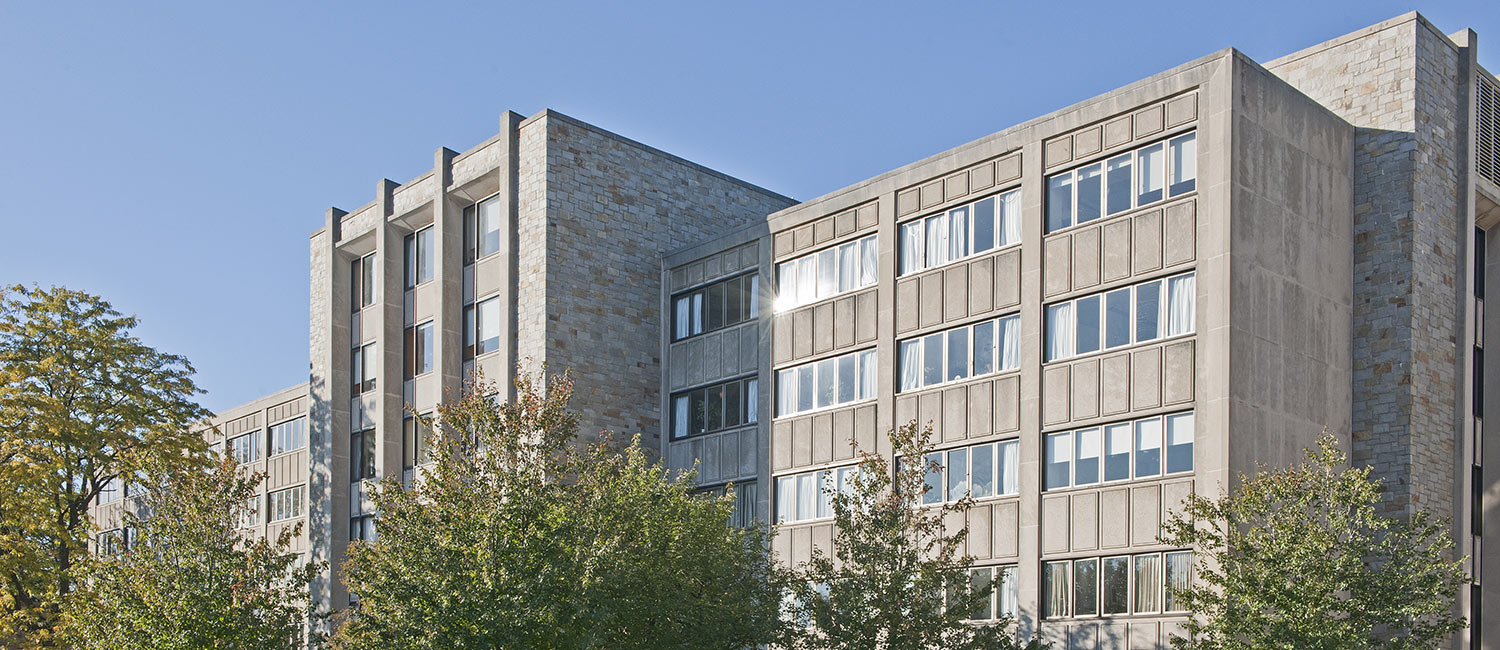


Research at the Boston College School of Social Work is about more than publishing papers—our faculty and students analyze emerging trends in hopes of breaking new ground in the field, and uncovering innovative ways to address social problems locally and globally.
Our researchers are committed to fully engaging with people to understand their lived experiences in order to co-design the most effective interventions and programs. BCSSW research focuses attention on communities that experience disproportionate social, health, and economic disparities in the United States, including the following:
Latinx Communities
Black Communities
Homeless and Housing Insecure Communities
Older (or Aging) Populations
Low-wage Workers
Many factors contribute to child and family well-being, including maternal access to prenatal care, environmental factors such as housing and food insecurity, and even societal issues like structural racism. Our researchers are focused on numerous topics related to child well-being including:
Child and Adolescent Mental Health
Child Abuse Prevention
Positive Parenting
Maternal Health
Focus on Fathers
BCSSW faculty forge strong collaborative relationships with government officials and policymakers to ensure effective interventions can be scaled and sustained, and our implementation partners include leading humanitarian organizations and local NGOs. Our global research includes the following areas of focus:
Research Partnerships in Low- and Middle-Income Countries (LMICs)
Refugees and Migrants
Children and Families in Humanitarian Settings
Environment and Sustainable Development
A key strength of our partnerships is application of novel approaches that enable community members to engage in intervention planning, design, and implementation. These methods center community voice, enable shared decision-making, and ensure culturally appropriate and relevant interventions and outcome measures. Our methods prioritize:
Research-Practice Partnerships
Participatory Research and Design
Participatory Modeling
Place-based Research
73
New Grants Awarded
FY22-25
$10.5M
Grant expenditures
FY25
74
Research assistantships
FY25
"“BC is a global university, and opportunities to come together and talk about issues that extend far beyond our campus are critically important.”
At a time when the number of forcibly displaced people worldwide has reached unprecedented levels, the Boston College School of Social Work’s Research Program on Children and Adversity (RPCA) and the Trinity College Dublin Centre for Forced Migration Studies gathered together at a symposium in Dublin to discuss the spectrum of resources and services necessary to aid such populations in remaking their lives.
Find information about training, mentoring, and consulting services to support BCSSW faculty, postdoctoral fellows, and student investigators to plan, fund, and implement research that generates a deeper understanding of and robust solutions to intractable social problems.
Provides education and 1:1 coaching to support faculty career progression and development—particularly for junior and mid-career faculty—to help them plan and implement a research agenda and generate timely and high-quality research outputs.
Kirsten K. Davison, Ph.D.
Associate Dean for Research
kirsten.davison@bc.edu
617-552-1616
The Dean of Finance and Administration reviews all financial aspects of BCSSW proposals to external funders and authorizes the OSP to submit the proposal to funder on behalf of the BCSSW by signing the PTF in PeopleSoft Financials Grants Module.
Sveta Emery, M.B.A.
Associate Dean for Finance & Administration
sveta.emery@bc.edu
617-552-9198
Supports planning and implementation of new research and educational initiatives, including Dean’s priorities, Center for Social Innovation initiatives, and faculty-initiated projects.
Linda DeLauri, Ed.M.
Director of Research and Program Development
linda.delauri@bc.edu
Administrative contacts assist PIs in the development and submission of complete proposal packages to the OSP; and coordinate the BCSSW internal review and approval process by creating a proposal record in PeopleSoft Financials Grants Module and completing and managing the PTF signature process. BCSSW strongly encourages PIs contact their administrative contact as soon as a decision is made to pursue a funding opportunity.
Alexandria Burk, Ph.D.
Assistant Director Fiscal and Grant Administration*
alexandria.burk@bc.edu
617-552-1040
(* Contact for all BCSSW faculty except those affiliated with or developing proposals in collaboration with Research Program on Children and Adversity.)
Andrea Morris
Associate Director, Grants Administration
Research Program on Children and Adversity
Andrea Morris@bc.edu
617-552-8394
Serves as a schoolwide resource for investigators. Interdisciplinary expertise in econometrics, epidemiology, and biostatistics. Collaborates with SSW faculty and doctoral students on study design, survey development, IRB applications, and data analysis. Contributes to the development of competitive grant proposals.
Assistant Professor of the Practice
Indrani.Saran@bc.edu
Boston College’s Office of Corporate & Foundation Relations (CFR) is a resource for faculty identifying potential funders and developing proposals to submit to foundations and corporations.
The OSP is the University’s signature authority (authorized official) for proposals and awards. PIs may not submit requests for funding to outside entities (sponsors) without the prior approval of OSP’s Pre Award representative. In most instances, BCSSW Administrative Contacts act as liaisons between faculty and OSP Pre Award staff.
The Boston College Institutional Review Board's (IRB) mission is to protect the rights and welfare of people who take part in research at Boston College.
The Office for Sponsored Programs maintains lists of internal and external funding sources.
Research Services provides consultation, training, and tutorials to support computing and research at Boston College. The Research Services staff has expertise in statistics, statistical software, qualitative research, surveys, GIS, scientific computation, data analysis, computational mathematics, and visualization. We also provide assistance with coding, databases, Web technologies, and administration and consultation for research oriented computing hardware based within the departments and institutes.